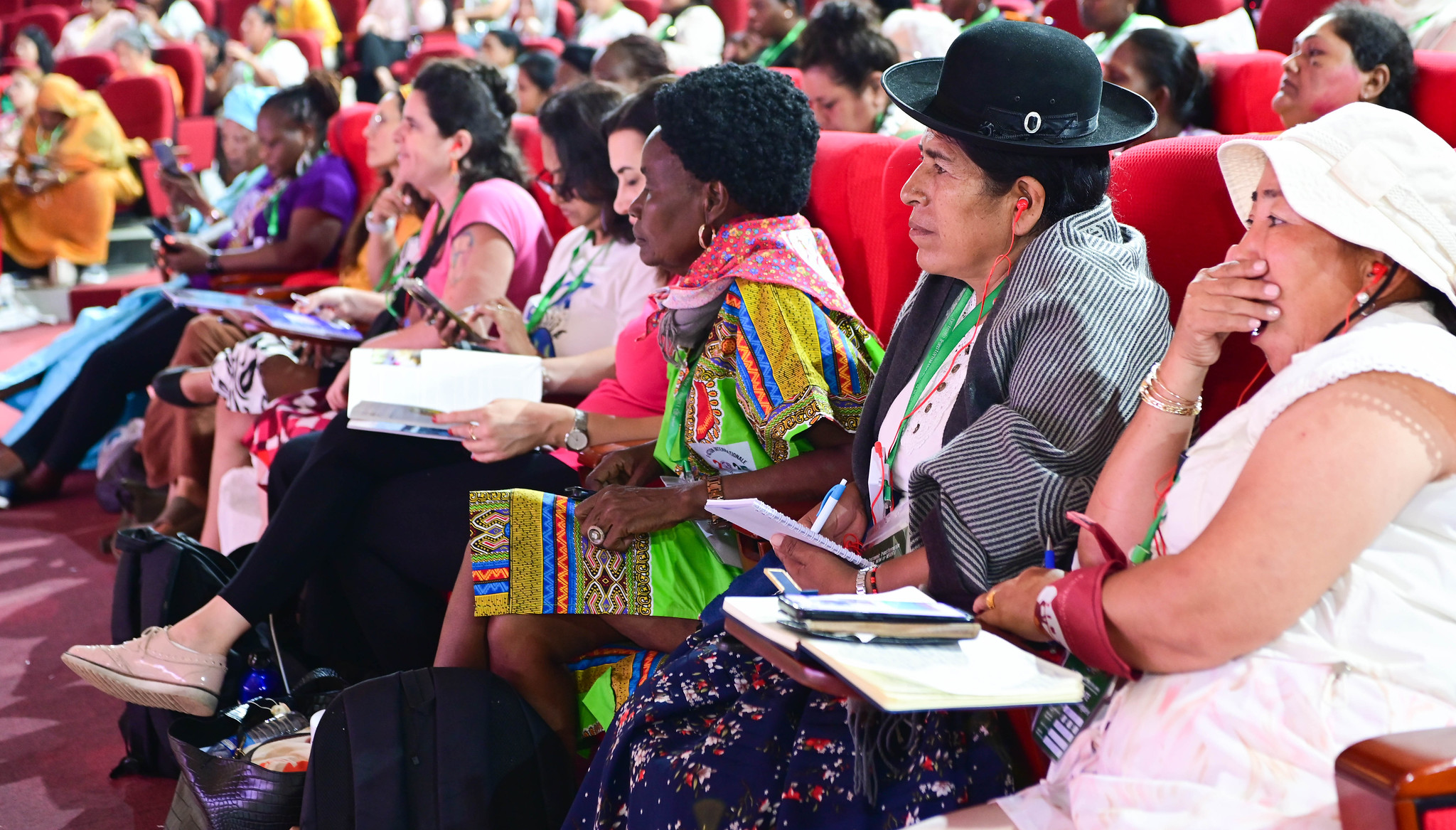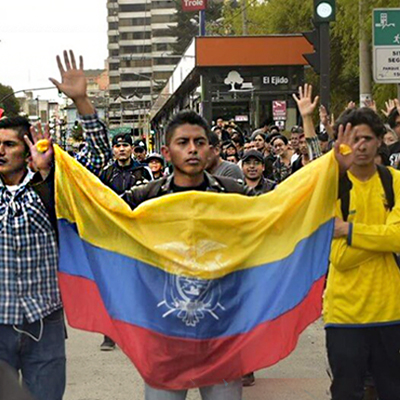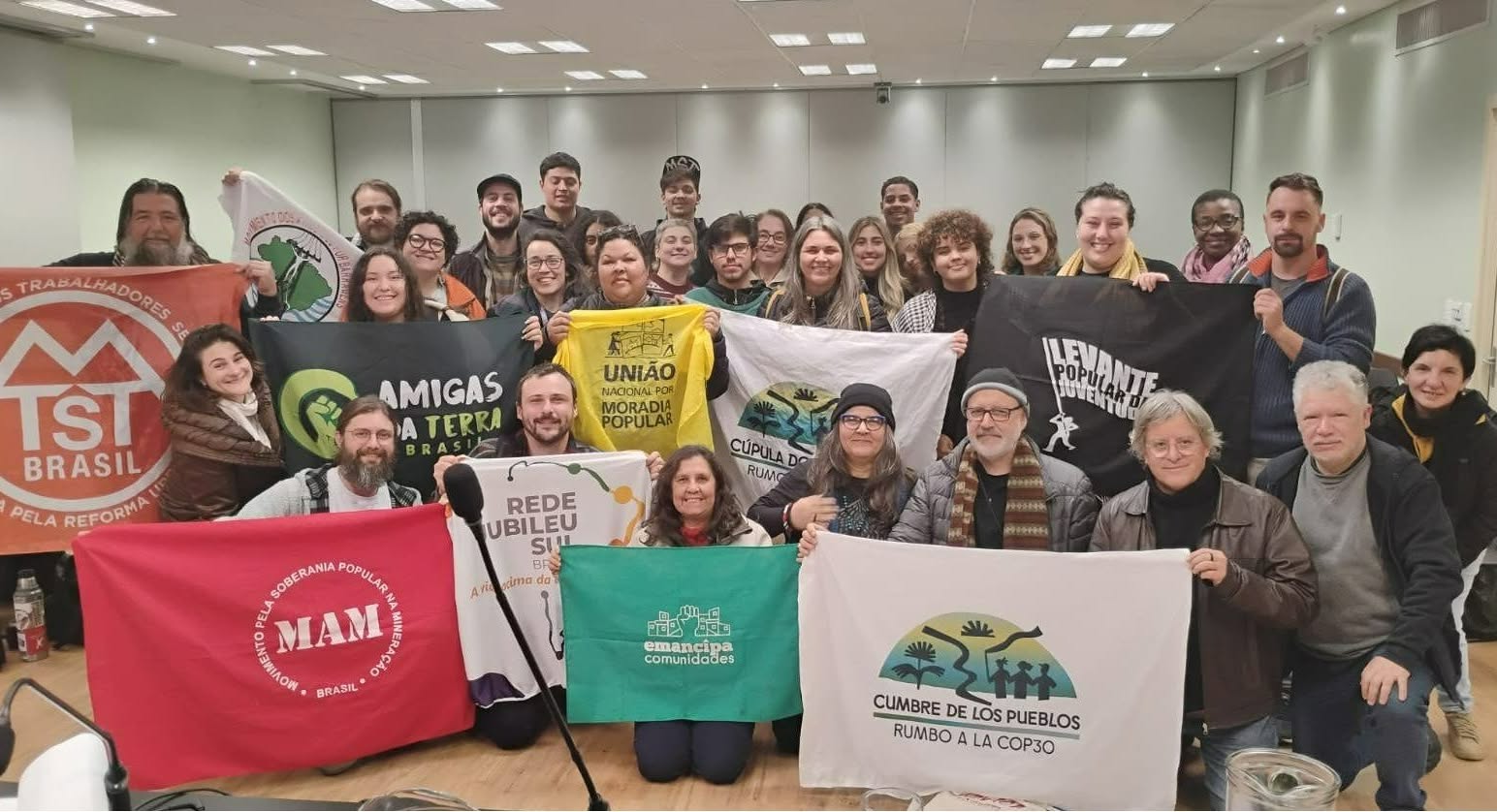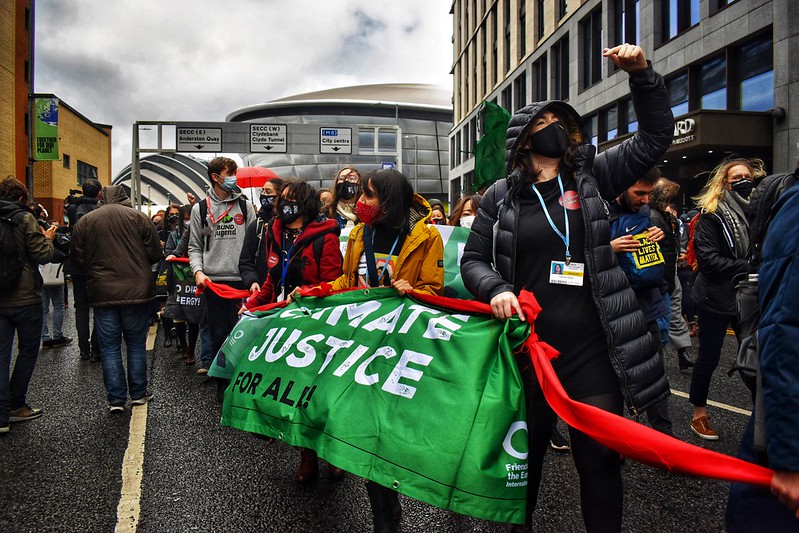Carbon Markets: a new form of climate colonialism
Climate justice movements and organizations speak out against Carbon Markets at COP 25.
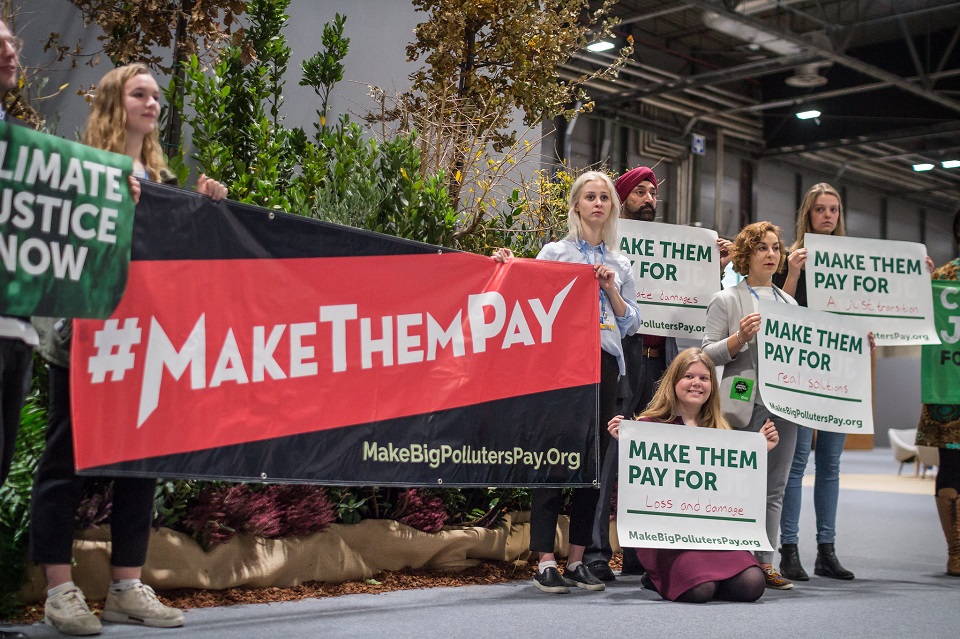 Action against Carbon Markets. COP 25. Madrid. Photo: Victor Barro, FoE Spain
Action against Carbon Markets. COP 25. Madrid. Photo: Victor Barro, FoE Spain
On December 5, international social movements and organizations fighting for climate justice demanded the elimination of carbon markets from the Paris Agreement, at the United Nations Climate Change Conference (COP 25) in Madrid.
Friends of the Earth International, La Vía Campesina, Grassroots Global Justice Alliance, the Indigenous Environmental Network, and the Asian Peoples’ Movement on Debt and Development launched a briefing to demystify carbon markets and expose them as a “false” solution to climate change and led a protest action inside COP 25. Along with other groups, they presented a theatre sketch about the environmental destruction caused by carbon markets, after which activists from the Global South spoke about the devastating impacts of these markets in their communities.
Cassandra Smithies, researcher from the Global Alliance of Indigenous Peoples, explained why carbon credits that are traded on the market are “a false solution against climate change”. “They are permits to continue polluting,” she said to Real World Radio.
Friends of the Earth International reported that Articles 6.2 and 6.4 of the Paris agreement, related to carbon markets, will be a key element on the negotiation table in Madrid. The most polluting countries and corporations are likely to present any resolution as a “solution” to the climate crisis.
“Climate change has been caused by the rich people of the planet, because they have been the ones able to produce and consume, and the damage has been caused in the Global South, against impoverished people. Therefore, in general terms, the Global North must provide funds so that Southern countries can make the transition, do reparations and have a dignified life. In terms of food, we can’t keep producing monoculture plantations: we need to produce small-scale, diverse food without polluants. In terms of transportation, we need to promote the use of bicycles. In terms of consumption, we need to ban single-use plastics: 250 million single-use plastics are produced each year, which are only used for five minutes and remain 500 years polluting the atmosphere. And, we need forests with native trees,” said Ricardo Navarro of CESTA – Friends of the Earth El Salvador.
During the day of action against carbon markets, Friends of the Earth International and allies also submitted a petition to keep these mechanisms out of the Paris rulebook, signed by over 165 organizations.
“We need to have a drastic transformation of the way in which we produce and distribute and consume energy. We need to have a radical transformation in the way that we produce, distribute and consume food. We need to look at how forests are managed, we need to change our economic systems. It is definitely possible and that is what is needed”, said dipti bhatnagar, Climate Justice & Energy program co-coordinator at Friends of the Earth International, to Real World Radio.
At COP25, Friends of the Earth International is releasing a Carbon Markets Briefing that has been put together along with other organizations (Read it in English, Spanish and French).



